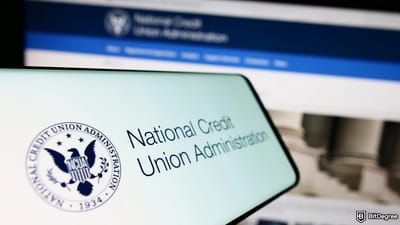Stop overpaying - start transferring money with Ogvio. Sign up, invite friends & grab Rewards now! 🎁
a16z and DeFi Education Fund Push SEC for Safe Harbor on NFTs and DeFi
Key Takeaways
- a16z and the DeFi Education Fund asked the SEC to create a "safe harbor" that would exempt certain NFT and DeFi projects from broker rules;
- The groups argued that only blockchain apps posing risks similar to brokers or exchanges should be subject to SEC registration;
- They noted that a safe harbor would clarify legal boundaries, reduce uncertainty, and still allow the SEC to act against high-risk platforms.
The US Securities and Exchange Commission (SEC) received a request from Andreessen Horowitz (a16z) and the DeFi Education Fund (DEF) asking the agency to create a "safe harbor" for certain blockchain applications.
The proposal targets non-fungible token (NFT) platforms and some decentralized finance (DeFi) tools.
It argued that these projects should not automatically fall under broker-dealer, exchange, or clearing-agency registration rules.

Did you know?
Subscribe - We publish new crypto explainer videos every week!
How to Avoid Crypto Taxes? (Legal Ways Explained)


The groups addressed their letter to Commissioner Hester Peirce, who leads the SEC’s Crypto Task Force. The request follows a call from the Working Group on Digital Assets, formed under President Donald Trump, that encouraged regulators to consider relief for certain DeFi providers.
Recently, the SEC and private plaintiffs have sued firms accused of operating as unregistered intermediaries. Names cited in public filings include Cumberland DRW, Coinbase
The letter proposed that only those apps that do not pose risks the Exchange Act’s broker-dealer rules were meant to address should qualify for the safe harbor. Services that function like core intermediaries or that present a risk to investors would remain fully subject to the SEC’s oversight and enforcement.
The organizations said a safe harbor would provide three practical benefits. First, it would draw a clearer line between products that must register and those that do not. Second, it would preserve the SEC’s authority to act against high-risk behavior. Third, it would reduce legal uncertainty for teams in the United States.
Recently, a group of major US banking associations asked Congress to address a gap in the new GENIUS Act. What did they say? Read the full story.




















